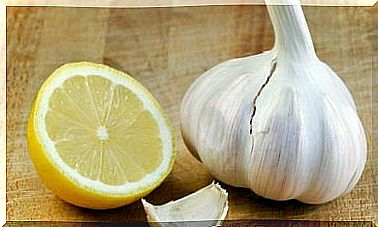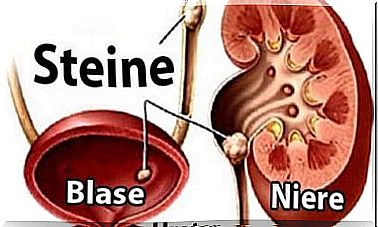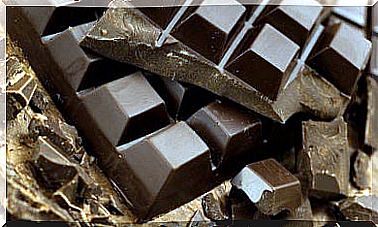Foods Rich In Minerals For Cardiovascular Health
Cardiovascular diseases are one of the leading causes of death worldwide. That is why prevention is particularly important. Various mineral-rich foods can help keep the cardiovascular system healthy.

In our modern diet, excessive consumption of saturated fats, sodium, and sugar is common. In addition, nutritional deficiencies often occur as the consumption of fruits, vegetables and seeds is insufficient to absorb the recommended daily amounts. But why are mineral-rich foods so important to cardiovascular health?
The World Health Organization (WHO) points out that cardiovascular diseases are the leading cause of death worldwide. Appropriate nutrition is very important for effective prevention and treatment. In addition, regular sporting activities are essential as support in addition to pharmacological treatment.
Interesting facts about cardiovascular diseases
Cardiovascular diseases include all heart conditions, cerebrovascular diseases and diseases of the blood vessels. Every year 17.1 million people worldwide die from it.
In Germany too, cardiovascular diseases rank first on the list of the most common causes of death, ahead of cancer and respiratory diseases. In 2017, a total of 932 272 people died of cardiovascular diseases in Germany, that is 37% of all deaths.
The World Health Organization reminds us that 80% of global cardiovascular disease deaths could be prevented with a healthy lifestyle and a reduction in risk factors.
The main risk factors for cardiovascular diseases

Poor diet combined with other harmful habits is directly related to the development of atherosclerosis. With this disease, plaque or deposits form in the blood vessels, which impede proper blood circulation.
The following factors promote this process:
- Behavioral risk factors: tobacco consumption, sedentary lifestyle, salty diet, too much sugar and fat, alcohol consumption
- Metabolic risk factors: high blood pressure, diabetes mellitus, hypercholesterolemia, overweight and obesity
Metabolic diseases go hand in hand with behavioral risk factors. The western diet often contains too much fat, which accumulates in the body and leads to obesity.
Overweight and obesity in turn impair the functions of the organs, which leads to diseases such as diabetes mellitus, high blood pressure or dyslipidemia.
A healthy lifestyle goes hand in hand with changed habits, with diet and exercise playing a particularly important role. Various nutritional recommendations can help regulate the altered metabolism. Proper diet can control many risk factors and protect the heart. The DASH diet is very helpful here.
DASH Diet: Foods rich in minerals for cardiovascular health
The DASH diet (Dietary Approaches to Stop Hypertension) was developed by the National Heart, Lung and Blood Institute (NHLBI) to reduce high blood pressure over the long term. The main guidelines of this diet are:
- Lots of fresh fruit and vegetables
- Replace white flour with whole wheat flour
- Modest consumption of fat and moderate consumption of foods of animal origin
- Sporadic consumption or avoidance of products with a high sugar content
This diet has a very positive effect on the main metabolic factors associated with the development of cardiovascular diseases. In 2019, Chiavaroli L et al used various meta-studies to demonstrate that this diet reduced the incidence of cardiovascular events and also reduced high blood pressure, increased LDL cholesterol, glycated hemoglobin, plasma insulin on an empty stomach and body weight in clinical trials.
The beneficial effects of the DASH diet are related to the biological effects of certain nutrients. These include, for example, flavonoids, which have anti-inflammatory and antioxidant effects, as well as minerals that have a positive effect on blood vessels.
Foods rich in minerals that promote cardiovascular health

There are many nutrients that are beneficial for cardiovascular health. In today’s article, however, we will focus on minerals that – as shown in a study published in the journal Current Hypertension Reports – are very beneficial.
Foods rich in minerals with potassium
Potassium affects the renin-angiotensin system because it changes the plasmatic activity of the retina, thus preventing high blood pressure. At the same time, this mineral is necessary for renal excretion of sodium and reduces the markers of endothelial disorders.
- Food sources: spinach, tomatoes, zucchini, mushrooms, bananas, dried fruits, avocado and chia seeds.
Mineral-rich foods with magnesium
Magnesium has an inhibitory effect on the contraction of the smooth muscles, has vasodilating effects and therefore causes the blood to flow through the veins and arteries with less pressure.
- Food sources: Dried fruits, dark chocolate (at least 70 percent cocoa content) and whole grains.
Mineral-rich foods with calcium
This mineral has effects similar to antihypertensive drugs known as ACE inhibitors in that it inhibits vascular contraction. At the same time , together with potassium, it supports the kidney excretion of sodium.
- Food Sources : Skimmed Dairy Products, Sardines, Almonds, and Chickpeas.
A varied diet with lots of vegetables, fruits and whole grains and modest amounts of animal products that should be low in fat covers the mineral requirements that are necessary for a healthy cardiovascular system. In addition, the organism is also supplied with other important nutrients in order to guarantee its functionality.
In addition, a healthy, varied diet will also help you control metabolic risk factors that could lead to cardiovascular disease.
Final recommendation
Get help from a nutritionist who can assess your needs and provide a nutritional diagnosis. He can then use this to create a special nutrition plan for you that covers all the needs that are important for your health.









